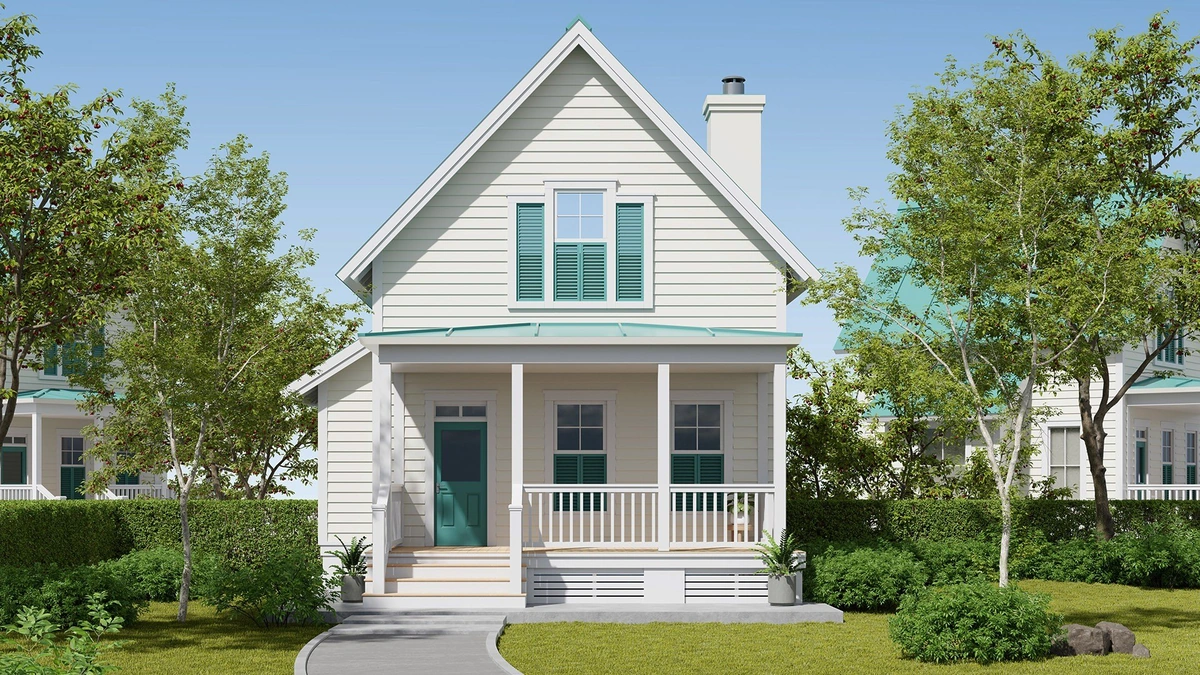Let’s be honest, buying a home is more than just a transaction; it’s a deeply emotional and often overwhelming experience. It’s about finding a place where you can build memories, raise a family, and feel secure. But here’s the thing: the process is often shrouded in complexities and unspoken truths that can leave first-time buyers feeling lost and vulnerable. What fascinates me is the psychology behind it – the dreams, the fears, and the compromises we make along the way.
Why Location Matters More Than You Think (And It’s Not Just About the Schools)

Everyone talks about location, location, location, right? But it’s not just about good schools or proximity to your job. It’s about the community, the vibe, and the long-term investment potential. A common mistake I see people make is focusing solely on the aesthetics of the home itself, overlooking the importance of the surrounding neighborhood. What are the local amenities? Are there parks, shops, and restaurants within walking distance? These factors can significantly impact your quality of life and the future value of your property. Don’t underestimate the power of a strong community – it can make all the difference. Consider checking out local Facebook groups or attending community events to get a feel for the area before committing.
The Mortgage Maze | Navigating Interest Rates, Down Payments, and Hidden Costs
Ah, the dreaded mortgage. It’s like navigating a labyrinth filled with confusing jargon and hidden traps. Understanding the different types of mortgages (fixed-rate, adjustable-rate, FHA, VA) is crucial. Let me rephrase that for clarity: Choosing the wrong mortgage can cost you tens of thousands of dollars over the life of the loan. The one thing you absolutely must double-check before signing anything is the APR (Annual Percentage Rate), which includes not only the interest rate but also other fees and charges associated with the loan. Don’t be afraid to shop around and get quotes from multiple lenders. And don’t forget to factor in closing costs, property taxes, and homeowner’s insurance – these can add a significant chunk to your initial investment. SmartAsset provides a mortgage calculator here to help you with this.
Beyond the Zillow Listing | Unveiling Hidden Flaws and Red Flags
Those glossy photos on Zillow can be deceiving. What fascinates me is how easily we can be swayed by staged furniture and clever lighting. But appearances can be deceiving, and it’s essential to look beyond the surface. I initially thought this was straightforward, but then I realized how many potential issues can be lurking beneath the surface. Always, always get a professional home inspection. It might seem like an unnecessary expense, but it can save you thousands of dollars in the long run by uncovering hidden problems like faulty wiring, leaky roofs, or pest infestations. A professional inspection can reveal structural issues, problems with the foundation, or signs of water damage – all of which can be costly to repair.
The Emotional Rollercoaster | Managing Stress and Maintaining Perspective
Buying a home is not just a financial investment; it’s an emotional one too. The stress of searching for the right property, negotiating with sellers, and securing financing can take a toll on your mental and emotional well-being. Be prepared for setbacks and disappointments along the way. It’s important to have realistic expectations and to remember that finding the perfect home takes time and patience. Don’t get caught up in bidding wars or make impulsive decisions based on emotions. Lean on your support system – family, friends, or a trusted real estate agent – to help you stay grounded and make rational choices. Consider pre-approval for a mortgage to give you confidence and a clear budget.
Negotiating Like a Pro | Strategies for Getting the Best Deal
Negotiation is a crucial part of the home buying process. Don’t be afraid to make an offer that’s lower than the asking price, especially if the home has been on the market for a while or if there are known repairs that need to be made. But, remember that comparable sales (comps) are critical. Understanding the local market and knowing what similar homes have sold for in the area will give you leverage in negotiations. A good real estate agent can provide you with this information and help you craft a competitive offer. Be prepared to walk away if the seller isn’t willing to negotiate on price or repairs – sometimes the best deal is the one you don’t make. Remember , there will always be other homes .
FAQ About Buying Homes
What if I have a limited budget?
Consider fixer-uppers or explore areas with lower property values. Focus on potential rather than perfection.
What if I’m self-employed?
Gather detailed financial records and be prepared to provide extra documentation to your lender. Consult with a financial advisor.
What if I can’t afford a 20% down payment?
Explore options like FHA loans or private mortgage insurance (PMI) but be mindful of the long-term costs.
What if I’m nervous about making such a big financial commitment?
Do your research, get pre-approved, and consult with a financial advisor to create a budget and plan. Remember, even experts get nervous!
What if I find a home I love, but it has some minor issues?
Weigh the cost of repairs against the overall value of the home . Get estimates from contractors and negotiate with the seller to cover some or all of the repair costs.
The journey to home ownership is a marathon, not a sprint. Stay informed, stay patient, and don’t be afraid to ask for help. And remember, the perfect home isn’t just a place; it’s a feeling.




